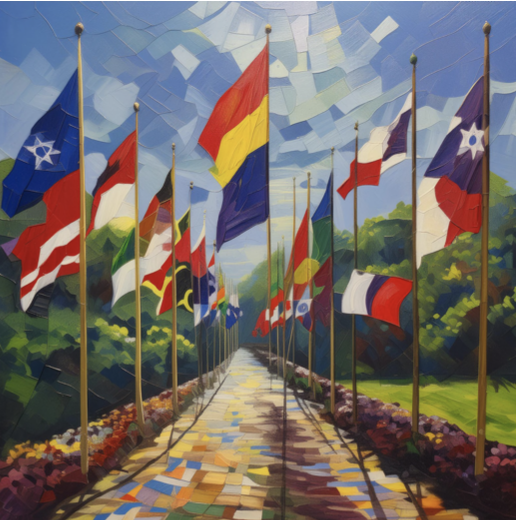BLUE PROGRAM
International Philosophy Olympiad (IPO)
Eligibility
Open to all 9th, 10th, 11th, and 12th grade students worldwide
Type(s) of Writing
Philosophical and critical analysis
Related Subject(s)
Philosophy (ethics), Politics, History, Psychology and Others
Expected # of References
7-15
Word Limit
1500
Deadline
January
Overview
The International Philosophy Olympiad (IPO) serves as a prestigious platform where talented young minds from around the world gather to engage in intellectual discourse and philosophical exploration. Founded with the aim of promoting philosophical inquiry among high school students, the IPO has grown into a globally recognized event that encourages critical thinking, analytical skills, and a deep appreciation for diverse philosophical traditions. Participants, often selected through national philosophy competitions, converge to exchange ideas, challenge each other's perspectives, and deepen their understanding of fundamental philosophical concepts.
During the International Philosophy Olympiad, participants are confronted with a series of challenging philosophical problems that test their ability to think critically, articulate complex ideas, and defend their positions through rigorous argumentation. These problems cover a broad spectrum of philosophical topics, ranging from ethics and metaphysics to political philosophy and epistemology. The competition not only fosters a spirit of friendly competition but also creates a unique cross-cultural environment where students from different backgrounds can share their philosophical insights, fostering mutual understanding and respect.
The impact of the International Philosophy Olympiad extends beyond the competition itself, influencing the participants' academic and personal development. Many alumni of the IPO go on to pursue higher education in philosophy or related fields, becoming future leaders and contributors to the global philosophical community. The IPO, therefore, stands as a testament to the power of philosophical exploration in shaping the intellectual landscape and nurturing the next generation of thinkers and scholars.
Website
https://www.philosophy-olympiad.org/?page_id=2
Essay Prompts
At times the truth shines so brilliantly that we perceive it as clear as day. Matter and habit then draw a veil over our perception, and we return to a darkness almost as dense as before. We are like those who, though beholding frequent flashes of lightning, still find themselves in the thickest darkness of the night.
Moses Maimonides, The Guide for the Perplexed (ca. 1190 AD), transl. M. Friedländer [slightly revised].
New York: Dover, 1956, p. 3.
Once war has been declared for just causes, the prince should press his campaign not for the destruction of his opponents, but for the pursuit of the right for which he fights and the defence of his homeland, so that by fighting he may eventually establish peace and security.
Francisco de Vitoria, “On the Law of War” (1539), in Id. Political Writings, ed. A. Pagden & J. Lawrance. Cambridge: Cambridge UP, 1991, p. 327.
What is the status of citizenship today, in a world of increasingly deterritorialized politics? How is citizenship being reconfigured under contemporary conditions? How has the fraying of the four functions of the state – territoriality, administrative control, democratic legitimacy, and cultural identity – affected the theory and practice of citizenship?
Seyla Benhabib, The Rights of Others. Aliens, Residents, and Citizens, Cambridge: Cambridge UP, 2004, p. 144.
Artificial intelligence is not an objective, universal, or neutral computational technique that makes determinations without human direction. Its systems are embedded in social, political, cultural, and economic worlds, shaped by humans, institutions, and imperatives that determine what they do and how they do it. They are designed to discriminate, to amplify hierarchies, and to encode narrow classifications. When applied in social contexts such as policing, the court system, health care, and education, they can reproduce, optimize, and amplify existing structural inequalities. This is no accident: AI systems are built to see and intervene in the world in ways that primarily benefit the states, institutions, and corporations that they serve.
Kate Crawford, The Atlas of AI: Power, Politics, and the Planetary Costs of Artificial Intelligence (2021).
Yale: Yale UP, 2021, p. 211.












